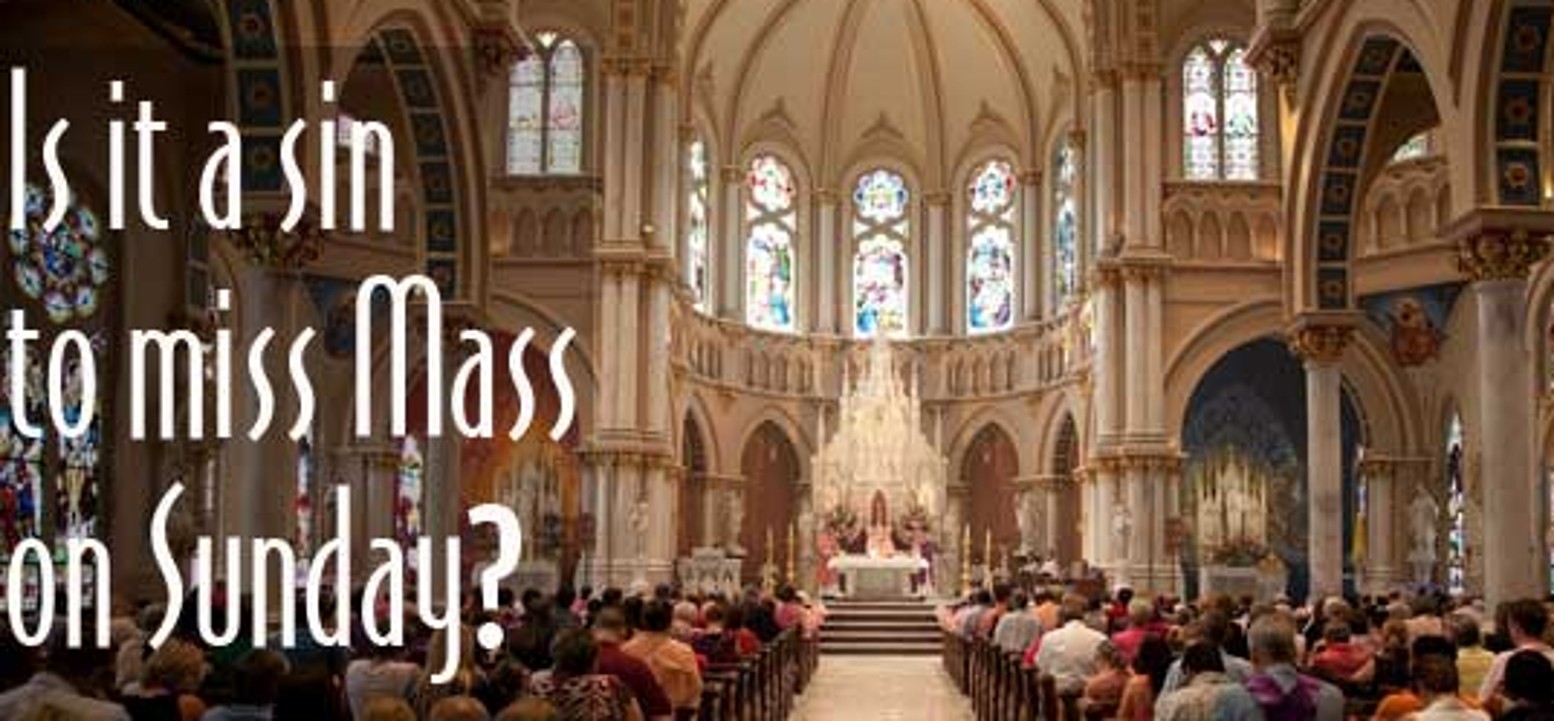CATECHESIS Q & A: DEEPENING OUR KNOWLEDGE
"Is it a Sin to Miss Mass on Sunday?"
Excerpted from “What’s The Smoke For?” by Johan Van Parys
 When you love someone, do you see it as an obligation to spend time with them?
When you love someone, do you see it as an obligation to spend time with them?
Is it a Sin to Miss Mass on Sunday? Do we as Catholics still believe we are “obligated” to “Keep Holy the Sabbath Day”? And why are there other days of “Holy days of Obligation”? When you love someone, do you see it as an obligation to spend time with them? Or, would the person who has been saved from drowning or a fire ever think it is a burden to thank their savior? These questions bespeak a legalistic and minimalist approach to the celebration of the mysteries of our faith, which is rather regrettable and supremely sad.
Our current understanding of Sunday and holy days of obligation is that it has been imposed on us by the Church, and rightfully so. By contrast, the early Church had no such law because there simply was no need for it. The sense of “obligation” early Christians felt to celebrate Sunday Eucharist flowed from a deep personal and communal desire. Theirs was an inner obligation to celebration of the Eucharist. St John Paul II in his apostolic letter Dies Domini (On Keeping the Lord’s Day Holy), calls it “obligation of conscience”. As this “obligation of conscience” or inner desire started to wane, individual bishops found it necessary to remind the faithful that the Sunday assembly was not simply an option but rather a sacred duty. In 1917 the Code of Canon Law 1247 defined the obligation to celebrate Eucharist on Sundays and Holy days of obligation as universal law.
CCC 2181: The Sunday Eucharist is the foundation and confirmation of all Christian practice. For this reason the faithful are obligated to participate in the Eucharist on days of obligation, unless excused for a serious reason (for example, illness, the care of infants, etc.) or dispensed by their own pastor. Those who deliberately fail in this obligation commit a grave sin.
Article No. 2: Published in the 1/18/15 bulletin